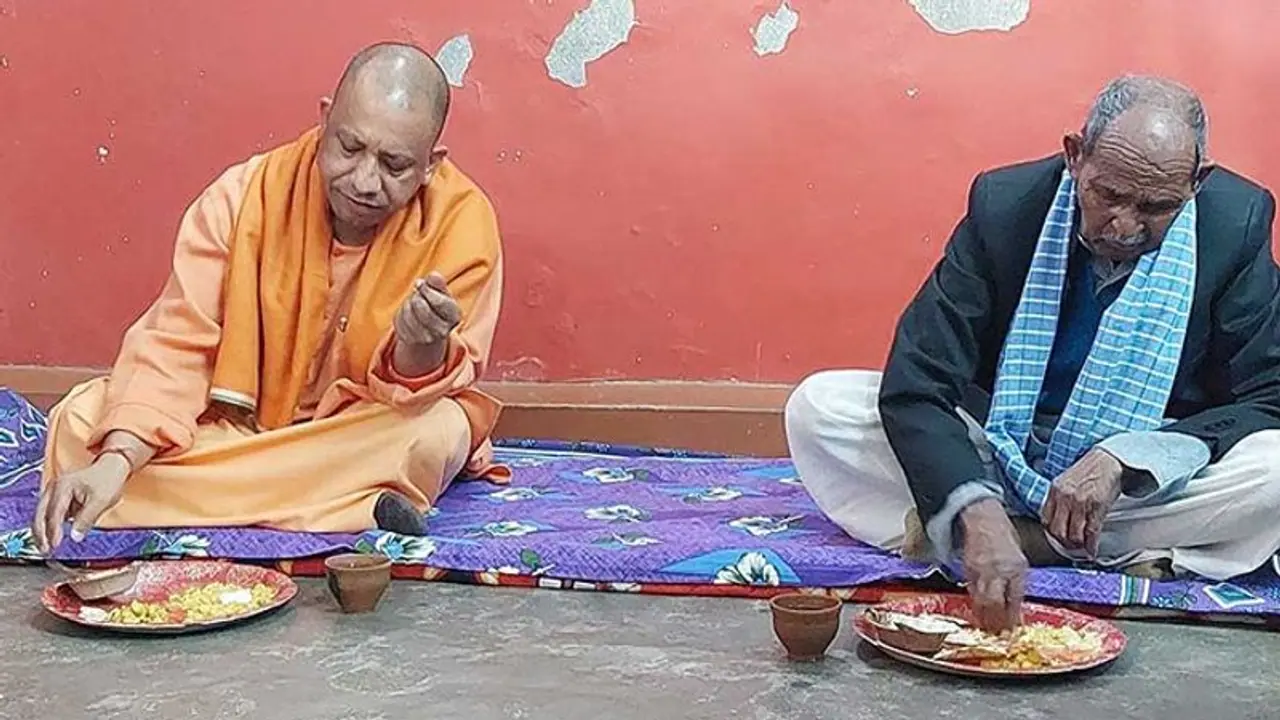Adityanath's visit to the Dalit family in Gorakhpur came just a few days after Swami Prasad Maurya, Dara Singh Chauhan, and Dharam Singh Saini resigned from the government. They had accused the BJP government of being anti-Dalit.
Uttar Pradesh Chief Minister Yogi Adityanath on Friday visited a Dalit household and had the 'good fortune of receiving khichdi prasad'. He took a dig at the Samajwadi Party and said during SP rule, there was 'social exploitation' rather than social justice. The CM further said the BJP government was working to develop all sections of the society without discrimination.

After the meal at Amritlal Bharti's home, Adityanath told reporters said only 18,000 houses were given to people under PM Awas Yojna in the full five-year term of the Akhilesh Yadav government in UP. In contrast, the current BJP government has allocated 45 lakh houses to the poor and the deprived under the scheme. He further said during the SP administration, it was 'samajik shoshan' (social exploitation) rather than 'samajik nyay' (social justice).
He said that under the "double engine" regime, 2.61 crore houses obtained toilets and 1.36 crore families benefitted from the Ujjwala Yojana, alluding to the BJP's rule at the federal and state levels. Yogi Adityanath further said those enslaved by dynasty politics could not provide justice to any segment of society. The SP administration has violated the rights of Dalits and the underprivileged, he added.
Also Read | UP Election 2022: SP chief Akhilesh Yadav meets Chandrashekhar Azad, alliance on cards
Adityanath's visit to the Dalit family in Gorakhpur came just a few days after Swami Prasad Maurya, Dara Singh Chauhan, and Dharam Singh Saini resigned from the government. They had accused the BJP government of being anti-Dalit. On Friday, they gathered at the Samajwadi Party office in Lucknow to join the party ahead of the assembly elections.
Maurya, Chauhan, and Saini, and nearly all rebel MLAs, cited the state government's failure to care for the welfare of Dalits and other backward sections as primary reasons for defecting from the saffron side.
